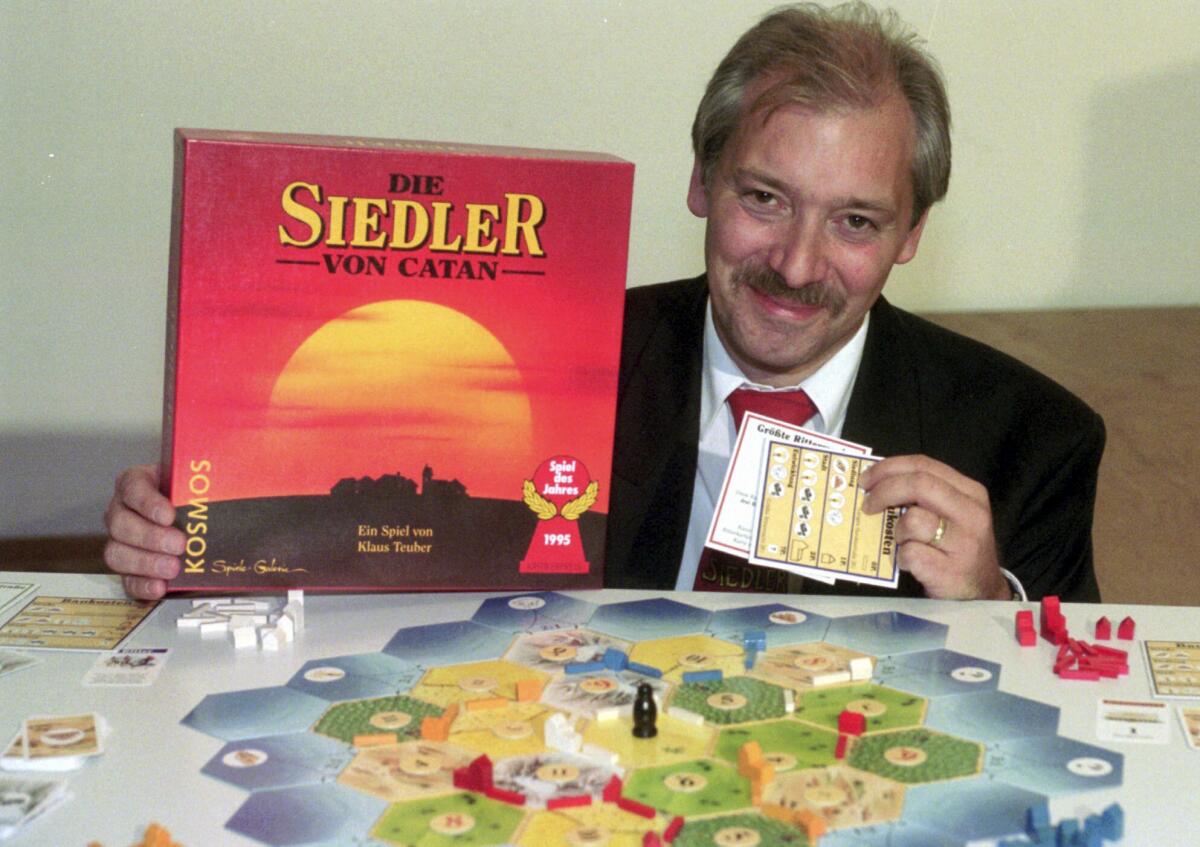Klaus Teuber, creator of the beloved Catan board game, dies

- Share via
Klaus Teuber, creator of the hugely popular Catan board game in which players compete to build settlements on a fictional island, has died after a brief illness, according to a family statement. He was 70.
The board game, originally called the Settlers of Catan when introduced in 1995 and based on a set of hexagonal tiles, has sold tens of millions of copies and is available in more than 40 languages. It has spawned dozens of spinoffs and new editions, including electronic versions, not to mention products related to the game.
“It is with great sadness and a heavy heart that the Teuber family announces their beloved husband and father Klaus Teuber passed away at the age of 70 on April 1, 2023 after a short and serious illness,” said the statement posted on the German-language Catan website. The family requested privacy.
A statement from the Catan studio team on social media noted that “While Klaus’ contributions to the board gaming industry are immeasurable, we will remember him most as a kind and selfless human being, an inspirational leader, and most importantly, as a friend.”
Teuber was born in 1952 in the German town of Rai-Breitenbach. He was working as a dental technician in the 1980s outside the industrial city of Darmstadt when he took up designing board games in his basement, he told the New Yorker magazine in 2014.
“I had many problems with the company and the profession,” he said. “I developed games to escape. This was my own world I created.”

In the multiplayer game, competitors use five resources to build their colonies, or settlements: wool, grain, lumber, brick and ore. Teuber never thought his game would become so successful; he finally left his dental technician job in 1998 “when I felt like Catan could feed me and my family,” he told the New Yorker. The game became a family business.
In the first five months of the pandemic in 2020, sales skyrocketed as people played games in quarantine, the company told NPR.
The Catan studio team urged those mourning Teuber to “honor Klaus’ memory by being kind to one another, pursuing your creative passions fearlessly, and enjoying a game with your loved ones.”
More to Read
Start your day right
Sign up for Essential California for the L.A. Times biggest news, features and recommendations in your inbox six days a week.
You may occasionally receive promotional content from the Los Angeles Times.





